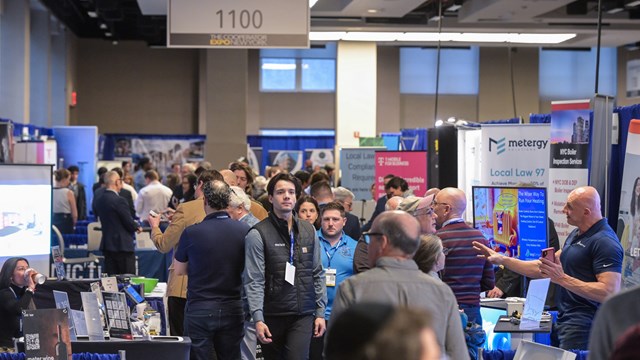
We've all heard the phrase "The road to hell is paved with good intentions." The old saw applies to legislation as well. We've often seen laws passed with what seemed to be the best intentions, only to discover later that they have left a trail of ruin behind them.
The bad news is that we are on the cusp of seeing just such a law being passed by the New York City Council. This bill will have such a detrimental effect on co-op owners in Queens, I was surprised to find many of its sponsors are the elected representatives of those same owners. I can only conclude that they have not read their own bill—or that they haven't spoken to any of the co-op leaders in their district.
About Intro 119
The bill in question is "Intro No. 119" and it would require co-ops to provide a "specific reason" for rejection of any potential purchaser. Sure, to the uninitiated it sounds harmless and reasonable—who would oppose a bill called "The Fair and Prompt Disclosure Law" anyway?
But to co-op presidents like myself who are responsible for co-op finances and the monthly maintenance fees, it spells disaster with a capital D. Intro 119 is an unfunded mandate being forced down the throats of working class co-ops by the same councilmen whose districts will be financially impacted by the bill. This bill is likely to increase monthly co-op charges as it opens the floodgates of litigation, and makes the already difficult task of recruiting volunteer board members next to impossible. I have re-dubbed it the "2007 Attorneys' Full Employment Act."
Here in Glen Oaks Village, a volunteer admissions committee created by the board screens all new applicants. This screening process is what sets co-ops apart from other types of home ownership. Screening is done not to hassle people, but to insure that all co-op residents truly understand the nature of co-op living. Living in a co-op is more akin to living in a fish bowl than residing in a private home. You have neighbors not only on both sides of you, but also above and below you. This close proximity to one another creates all sorts of problems that homeowners rarely face.
So the objective of any well-conceived admissions policy is to make sure that prospective buyers understand this. Screening is equally important to ensure that new owners have the financial wherewithal to afford the cost of co-op living—which includes a monthly maintenance charge that finances the operation of the co-op, as well as any special assessments that may be necessary for unforeseen repairs or maintenance. Any one shareholder's failure to pay becomes the burden of all. So the screening process seeks to weed out those whose finances may put the other owners at financial risk.
No Reason With Good Reason
When a co-op rejects an application, it generally does so without providing a specific reason for the rejection—which in our litigious society is quite understandable. In fact, the courts have consistently granted co-op boards' great latitude in making such decisions, provided that they do not engage in illegal discrimination.All co-ops know the 14 protected classes under which a purchaser can easily bring an action if they believe their rejection was due to discrimination: age, alien status, children, country of origin, creed, disability, gender, lawful occupation, marital status, military status, partnership status, race, religion, and sexual orientation.
In cases of alleged discrimination, the burden of proof rests with the individual doing the alleging. The co-op like all citizens is presumed innocent until proven guilty. To do otherwise would open the floodgates to protracted litigation—but that is exactly what this bill does. It puts the co-op on the defensive and forces it to prove its innocence, even without a scintilla of proof that it has engaged in such activity in the past. If Intro 119 passes, my prediction is that nearly every co-op rejection would find its way into court.
The bill would require the co-op to provide a detailed explanation for the rejection. It would give the volunteer board members five days to produce this legal document and certify it. If a court found the reasons for rejection were improper, these volunteer board members could be subject to substantial civil and monetary damages. What a wonderful way to encourage volunteerism!
The Board's POV
The overwhelming majority of screened applicants are approved. Certainly there are a few that are denied, but this is done not as the legislative sponsors flippantly allege "to conceal arbitrary or discriminatory refusals" but to make the co-op community a better place to live. While most denials are for financial reasons, I have seen prospective buyers denied because they did not understand nor care to understand our house rules. I have even seen individuals appear at screening interviews in an inebriated or belligerent state.
It's doubtful the courts would find these denials permissible because the burden of proof would be too high and could never be met in court. Without a breathalyzer test, how does a co-op prove its case? How does the co-op begin to prove belligerence, or that the purchaser doesn't understand the concept of co-op living or its house rules?
The screening process is designed to protect families who are simply seeking a safe, secure and family-oriented environment. The end result of Intro 119 will be a reversal of the boards' rejection and erode the co-op's ability to maintain high standards. The threat of costly litigation will force boards to accept individuals that they have every reason to believe should be rejected. Should the legislation pass, we can expect to see monies that would otherwise be used for community projects diverted to costly attorney fees.
With so many problems to deal with, why would the city council push such a bill when there has been no proof of systemic patterns of discrimination in co-ops? Intro 119 may look like a piece of feel-good legislation, but in the end, it will be anything but. The Queens and Manhattan councilmen whose names appear on this bill need to re-think their support of it and disassociate themselves from this ill-conceived piece of legislation.
Bob Friedrich is president of the board of Glen Oaks Village in Queens. The opinions stated in this column are solely those of Mr. Friedrich, and do not necessarily reflect the views of The Cooperator, its editorial staff, or Yale Robbins, Inc.






4 Comments
Leave a Comment